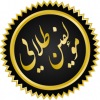جلد سخت سیاه و سفید
Product details
- Publisher : Oxford University Press (July 28, 2022)
- Language : English
- Hardcover : 368 pages
- ISBN-10 : 0198846010
- ISBN-13 : 978-0198846017
کتاب Afghan Crucible: The Soviet Invasion and the Making of Modern Afghanistan
A new global history of the Soviet invasion of Afghanistan - an invasion whose consequences are still felt in Afghanistan and across the wider world
On 24 December 1979, Soviet armed forces entered Afghanistan, beginning an occupation that would last almost a decade and creating a political crisis that shook the world. To many observers, the Soviet invasion showed the lengths to which one of the world's superpowers would go to vie for supremacy in the global Cold War. The Soviet war, and parallel covert American aid to Afghan resistance fighters, would come to be a defining event of international politics in the final years of the Cold War, lingering far beyond the Soviet Union's own demise. Yet Cold War competition is only a small part of the story. Soviet troops entered a country already at war with itself. A century of debates within Afghanistan over the nature of modern nationhood culminated in a 1978 coup in which self-described Afghan communists pledged to fundamentally reshape Afghanistan. Instead what broke out was a civil war in which Afghans asserted competing models of Afghan statehood. Afghan socialists and Islamists
came to the fore of this conflict in the 1980s, thanks in part to Soviet and American involvement, but they represented a broader movement for local articulations of social and political modernity that did not derive from foreign models. Afghans, in conversation with foreigners, set many of the parameters of the conflict. This sweeping history moves between centres of state in Kabul, Moscow, Islamabad, and Washington, the halls of global governance in Geneva and New York, resistance hubs in Peshawar and Panjshir, and refugee camps scattered across Pakistan's borderlands to tell a story that is much more expansive than the Soviet invasion of Afghanistan - a global history of a moment of crisis not just for Afghanistan or the Cold War but international relations and the postcolonial state.
منابع کتاب کتاب Afghan Crucible: The Soviet Invasion and the Making of Modern Afghanistan
تاریخ جهانی جدید تهاجم شوروی به افغانستان - تهاجمی که پیامدهای آن هنوز در افغانستان و سراسر جهان احساس می شود.
در 24 دسامبر 1979، نیروهای مسلح شوروی وارد افغانستان شدند و اشغالی را آغاز کردند که تقریباً یک دهه به طول انجامید و یک بحران سیاسی ایجاد کرد که جهان را تکان داد. برای بسیاری از ناظران، تهاجم شوروی نشان داد که یکی از ابرقدرتهای جهان تا چه اندازه برای برتری در جنگ سرد جهانی رقابت میکند. جنگ شوروی و به موازات آن کمک های پنهانی آمریکا به مبارزان مقاومت افغان، رویدادی تعیین کننده از سیاست بین المللی در سال های پایانی جنگ سرد خواهد بود که بسیار فراتر از نابودی خود اتحاد جماهیر شوروی باقی می ماند. با این حال رقابت جنگ سرد تنها بخش کوچکی از داستان است. نیروهای شوروی وارد کشوری شدند که قبلاً با خود جنگ داشت. یک قرن بحث در داخل افغانستان بر سر ماهیت ملیت مدرن با کودتای 1978 به اوج خود رسید که طی آن کمونیست های افغان که خود را توصیف می کردند، متعهد شدند که اساساً افغانستان را تغییر دهند. در عوض، آنچه آغاز شد، جنگ داخلی بود که در آن افغانها مدلهای رقیب دولت افغانستان را مطرح کردند. سوسیالیست ها و اسلام گرایان افغانستان
این درگیری در دهه 1980 تا حدی به لطف دخالت شوروی و آمریکا در کانون توجه قرار گرفت، اما آنها نماینده جنبش گستردهتری برای بیان محلی مدرنیته اجتماعی و سیاسی بودند که از مدلهای خارجی نشأت نمیگرفت. افغان ها در گفتگو با خارجی ها، بسیاری از پارامترهای درگیری را تعیین می کنند. این تاریخ گسترده بین مراکز ایالتی در کابل، مسکو، اسلام آباد و واشنگتن، تالارهای حکومت جهانی در ژنو و نیویورک، کانون های مقاومت در پیشاور و پنجشیر، و کمپ های پناهندگان پراکنده در سرتاسر مرزهای پاکستان حرکت می کند تا داستانی را روایت کند که بسیار زیاد است. گسترده تر از تهاجم شوروی به افغانستان - تاریخ جهانی یک لحظه بحرانی نه فقط برای افغانستان یا جنگ سرد، بلکه روابط بین المللی و دولت پسااستعماری.
































ارسال نظر درباره کتاب Afghan Crucible: The Soviet Invasion and the Making of Modern Afghanistan